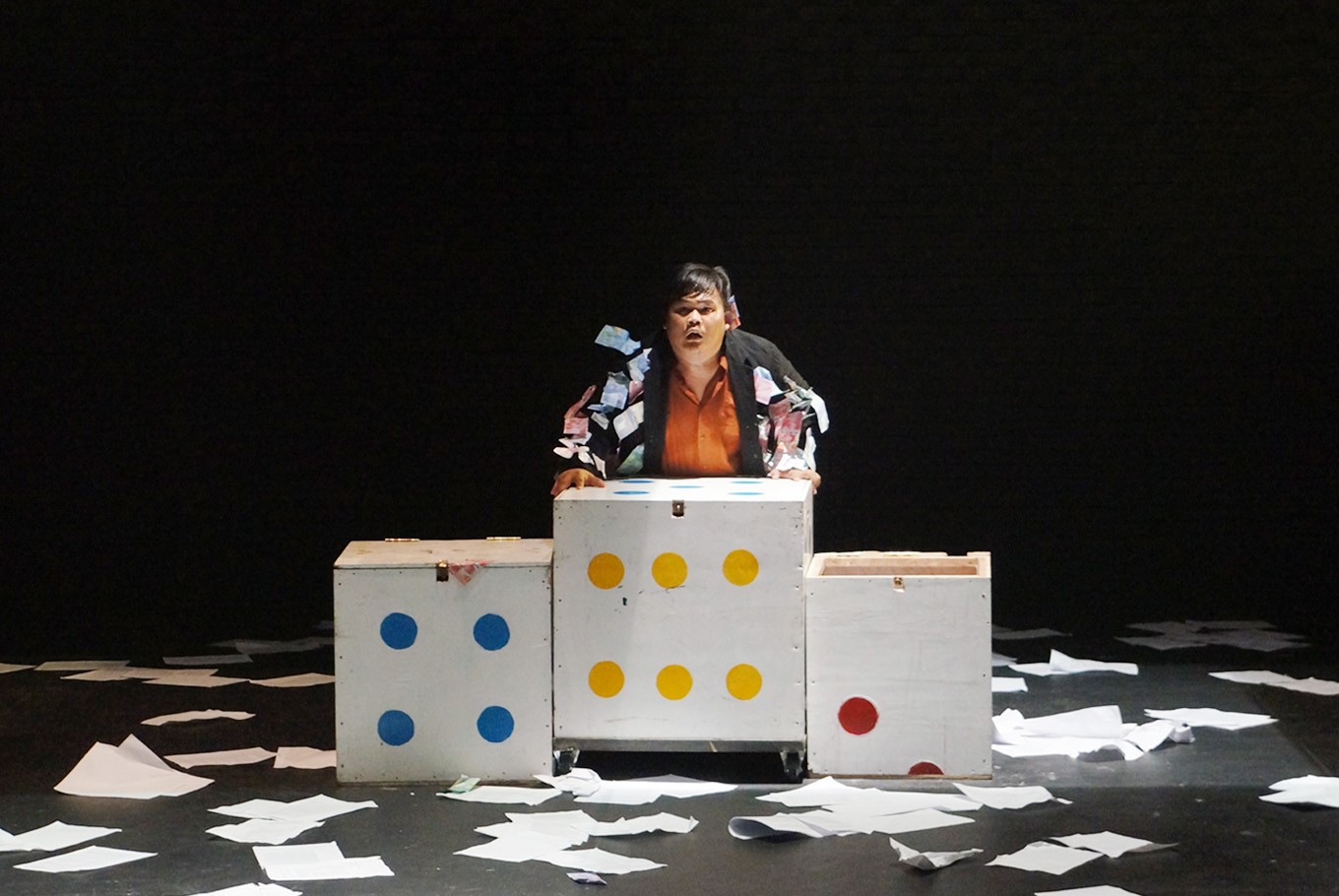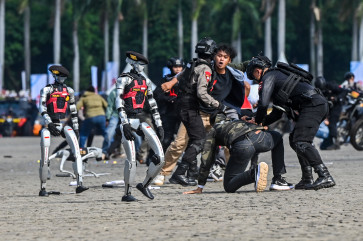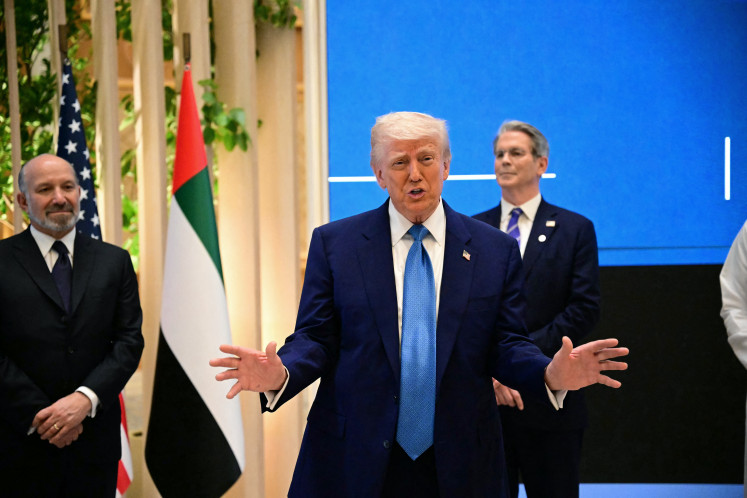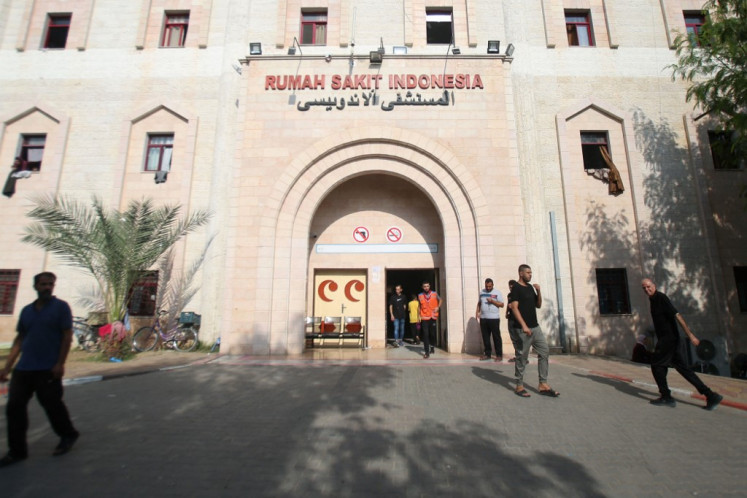Popular Reads
Top Results
Can't find what you're looking for?
View all search resultsPopular Reads
Top Results
Can't find what you're looking for?
View all search resultsHelateater highlights nonverbal plays in Indonesia
Cultural community Komunitas Salihara wrapped up Helateater, a biyearly festival that presents the newest works of artists, on Mar. 25.
Change text size
Gift Premium Articles
to Anyone
 A scene from the dress rehearsal of 'Monopolis', a nonverbal play by the Hitam Putih Arts Community at Salihara Theater, South Jakarta on Friday (24/03). Director Kurniasih 'Tintun' Zaitun said the scene represented elements regarded as important in the economic world, such as money and legal papers. She also said that 'Monopolis' represented the human desire to monopolize the world. (JP/Masajeng Rahmiasri)
A scene from the dress rehearsal of 'Monopolis', a nonverbal play by the Hitam Putih Arts Community at Salihara Theater, South Jakarta on Friday (24/03). Director Kurniasih 'Tintun' Zaitun said the scene represented elements regarded as important in the economic world, such as money and legal papers. She also said that 'Monopolis' represented the human desire to monopolize the world. (JP/Masajeng Rahmiasri)
C
ultural community Komunitas Salihara wrapped up the second edition of Helateater, a biyearly festival that presents the newest plays at Salihara Theater, South Jakarta, on Mar. 25.
The one-month festival has featured nonverbal plays by local communities, such as Mati Berdiri (standing dead) by Sena Didi Mime group from Jakarta, Burung-Burung Prenjak (the prenjak birds) by Studio Taksu group from Surakarta, Central Java, as well as Monopolis (monopolists) by Komunitas Seni Hitam Putih (Hitam Putih Arts Community) from Padangpanjang, West Sumatra.
Hendromasto Prasetyo, curator assistant of Salihara’s theater section said the festival was created to highlight the existence of the nonverbal genre in Indonesia. “It started to exist and develop in Indonesia in the 1960s and it is worth our attention. It is better if we can help maintain it,” he said.
He stated that delivering the newest works of the artists – the works created 2-3 months prior to the festival – is another focus of Helateater. “What's important is that they [the artists] keep on producing art. Responses will be determined by the quality of the work itself,” he stated, noting that the size of the audience is not a concern.
Monopolis, a 50-minute nonverbal play by the Hitam Putih Arts Community closed the festival on Saturday. The play was delivered by three young men who hustled to dominate dices on the stage. Director Kurniasih ‘Tintun’ Zaitun said that it represented the human desire to monopolize, to have everything in the world.
Read also: Teater Koma celebrates 40th anniversary with nostalgic show
“We do the act of monopoly in our daily life,” Tintun told The Jakarta Post during the play’s dress rehearsal on Friday.
Tintun said that daily activities or necessities such as work and smartphones may have been monopolizing or being monopolized by humans--taking away the time to do other important things. She also said that monopolists will always seek to gain everything, a greed that could severe ties between people.
“In the end, it will be an endless maze because the monopolists are never satisfied,” she said.
Such a message was conveyed through dance and fight scenes without any concrete lines. Tintun said that this time, she chose to do a nonverbal play because the genre leaves room for numerous interpretations.
“Everyone can bring their own experience into this. As there are no words expressing the meaning, the show can be interpreted [differently] by each person,” she said. Tintun stated that audiences were free to choose if Monopolis is a play about politics, economics, or other aspects of life.
Tintun also said that the genre is not yet popular in Indonesia. “[Indonesian] audiences are still being pampered with concrete, entertainment plays because it is still hard for our citizens to think for themselves,” she said. (asw)









